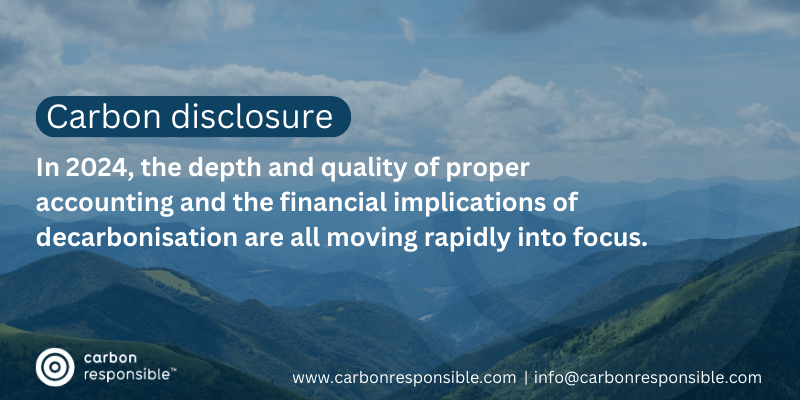
The process of measuring carbon emissions might appear straightforward at first glance but aggregating the various sources of data and producing water-tight, regulatory-compliant emissions reports can become quite tricky.
Since 2020, carbon disclosure has gone from a niche to mainstream requirement. Depending on a company's sector and turnover, it’s a legal requirement with resulting penalties and impacts if submitted incorrectly.
We’re seeing a number of challenges emerge as the business community continues to grapple with the increased regulatory framework which faces them in 2024.
Challenge 1: not being able to articulate a net-zero emissions target
Based on working with companies as small as start-ups and as large as FTSE100s, both investors and teams often lack the clarity that would support better levels of achievement, although this is not of itself, a complete barrier to substantive action.
This variable reporting, across the board, is a product of recent regulations and complex accounting challenges for robust disclosure. Regulatory bodies are seeking to close the quality gap which has led to multiple new regulations and disclosure frameworks which lack clear interoperability, even though increased alignment is arriving.
Challenge 2: companies aren’t collecting the right data
Data collection is standard across the Carbon Accounting market, but data validation can be the downfall for many. Verifying incoming data streams is key to quality, transparent reporting. We guide clients on how best to design ongoing reporting systems for forward year measurement which in turn enables them to speak confidently about their emissions.
Climate related financial disclosures are best encapsulated in the IFRS2.0 framework, which requires a fusion of strategy, governance, risk/opportunity analysis as well as metrics and targets. Most companies can deliver some metrics, however often not all of those that are material to their operations/impact, with a bias to those which are easily measured or often estimated. Targets by extension are early stage and often incomplete.
Challenge 3: any disclosure, simply isn’t enough
The transition costs to lower carbon operations can impact ROI both negatively and positively as longer-term decarbonisation pathways and related investment/benefits are realised.
The upswing in demands from companies and investors to improve disclosure and decarbonisation plans is happening at a time when there are significant global economic challenges, which add pressure to profits and valuations.
In summary, audit-quality reporting should remain a key focus with equal parts of consideration given to strategy, governance and Enterprise Value. The process of carbon disclosure, while complex, should add value to an organisation’s ability to make forward looking decisions about CAPEX investment or divestiture.
Partner content submitted by carbon accounting specialists, Carbon Responsible – view here | info@carbonresponsible.com
- Log in to post comments
Join the Chamber
Be a part of the largest business membership organisation in the region and tap into a range of valuable business benefits.